More Alumni
![[Translate to English:] SPRING Alumni [Translate to English:] Photo of Akosua Afriyie Osei Appaw](/storages/raumplanung/r/SPRING/Pictures/Alumni/SPRING_Akosua-Afriyie-Osei-Appaw_hp.jpg)
What have you gained from SPRING?
As a SPRING student, I did not only become intellectually endowed but learnt a lot of social skills. I learnt how to co-live with different people from different cultural backgrounds and with different temperaments. Outside the classroom I was fascinated by the art all around me. Intellectually, I was exposed to regional planning methods and more not only from the European perspective but also from all the other countries of my mates.
In which professional activities have you been involved since the completion of SPRING?
I found myself working with the German International Cooperation after I returned to Ghana. It was my first time working in a multi-cultural environment but my experience at SPRING helped me a lot. I took my fascination in art, which started in Dortmund, and created Dare 2 Dream Ghana, a non-governmental organization back home in Ghana which uses arts education to help develop the intellect of children and the youth. Due to the progress made, I was chosen to be part of the Mandela Washington Fellowship for young African Leaders where we underwent a 6-weeks leadership training program in the United States and met with President Barack Obama in a town hall meeting in Washington DC.
What is your latest professional project? / Where and what are you working currently?
Currently, i am working at the Ghana College of Physicians and Surgeons as a Project Coordinator.
What have you gained from SPRING?
I joined SPRING program in 2005, It was the first international study I have enrolled in. SPRING program assisted me to be more strategic and focused. The ZOPP/GOPP methods where the most interesting theme that I have learned from a lot. It has improved my planning skills and help me to build my analytical skills.
In which professional activities have you been involved since the completion of SPRING?
After I finished SPRING, I have worked as a UN staff and with International organizations. I worked as a head of Dire Daw sub office with WFP Ethiopia, and then moved to be the gender advisor for WFP mission in Ethiopia. Then after, I have also worked for CARE international in Yemen, UNIFEM/UNWOMEN in Sudan, UNDP in Tunisia, UNWOMEN Regional Office for Arab States in Cairo, and UNDP Libya.
The SPRING experience improved my analytical skills, I have also invested in building up on this skill.
What is your latest professional project? / Where and what are you working currently?
Currently I am on the process to resume my Ph.D, preparing myself in term providing the documents needed as well as the financial support.
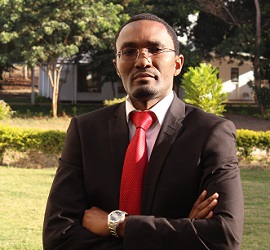
What have you gained from SPRING?
Most importantly SPRING taught me planning skills in practical aspects that have proven to be very useful in my professional development. The workshops I did in Germany and in Ghana were worth it. The traits my co – workers see in me today, a good facilitator with confidence in his work, have their roots deep down in my experiences at the SPRING program.
In which professional activities have you been involved since the completion of SPRING?
Upon returning back to Tanzania, I worked on several national and international professional projects and consultancies for two years as development consultant. These projects were implemented by TWAWEZA East Africa, Sokoine University of Agriculture (SUA), The International Centre for Tropical Agriculture (CIAT), Catholic Relief Services (CRS), Australian Centre for International Agriculture Research, CGIAR/IWMI WLE. July 2015 to June 2016, I worked with Longido Community Development Organization (LCDO), a Maasai organization as Programs Officer where I was tasked to coordinate activities of the Belgium Fund for Food Security’s “Maisha Bora” (Better Life) program in Longido District. “Maisha Bora” is a five year program implemented by five international partners; Belgium Technical Council (BTC), World Food Programme, Medicines Sans Frontieres, Trias, Iles de Paix and 10 local organizations include LCDO.
What is your latest professional project? / Where and what are you working currently?
Since June 2016, I took up my current position, working as Planning Officer for the Kilimanjaro Christian Medical Centre (KCMC). KCMC is one of four major referral hospitals in Tanzania. As a Planning Officer, my primary task is to work very closely with the hospital management and making sure that the hospital provides quality services to all patients. Here, I am using my development planning skills to give the hospital a clear future focus. At the moment I am in charge of coordinating the implementation of the KCMC’s Five Year Rolling Strategic Plan 2016 - 2021. This includes providing training to senior management officials of the hospital and other cadres. I am also overseeing planning of the new and future hospital projects include new buildings for the hospital departments and staff residences.
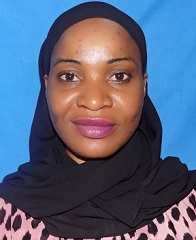
What have you gained from SPRING?
In SPRING Program, I have gained lots of knowledge on planning issues, different planning techniques experiences from different countries and the ability to compare with my country. This is due to the fact that in SPRING class, we were more than eight different countries from different continents which having different planning procedures in terms of social, economic, political, environment and cultural aspects.
In which professional activities have you been involved since the completion of SPRING?
Before coming to SPRING, I was working as Environmental Management Officer in a Tanzanian local/private company named GAIA Eco Solutions (Tanzania) Limited that deals with recycling of lead acid batteries to produce high quality Pure Lead and Lead Alloys products. I worked in cooperation with local government authorities, neighbor companies and near by the company communities and made sure that environmental policy and regulations are followed effectively I have been involved in making Environmental Management Plan and Environmental Auditing Reports for our company GAIA Eco Solution Tanzania Limited. Those reports were done in cooperation of different stakeholders such as communities, neighbor companies’, local government authorities (Ward, Municipal and City Councils) and government institutions dealing with environmental issues such as National Environment Management Council (NEMC) and Vice President Office, Division of Environment.
What is your latest professional project? / Where and what are you working currently?
Currently, I am working at Synarge Group of Companies which includes GAIA Eco Solutions (Tanzania) Limited (Lead Acid Recycling Plant) and Brakes Tanzania Limited (Brakes Lining and Warehouse) as Environmental Manager, dealing with managing environment, health and safety issues.
![[Translate to English:] SPRING Alumni [Translate to English:] Photo of Christopher Phiri](/storages/raumplanung/r/SPRING/Pictures/Alumni/SPRING_Christopher-Phiri_hp.jpg)
What have you gained from SPRING?
I gained a lot from the SPRING program. The SPRING program exposed me to theories and skills of Regional and Urban Planning at a higher level. The workshops were closer to real working life group dynamics. All these have proved helpful in my professional endeavors.
In which professional activities have you been involved since the completion of SPRING?
I was in pioneer group of the Germany (Dortmund) - Tanzania (UCLAS, now Ardhi) partnership. After I completed my MSc in Urban & Regional Development Planning & Management in 2004, I was appointed as Provincial Planner for Lusaka Province. Lusaka is the capital city of Zambia. This position entailed that I play the role of a secretary to the Regional Planning Platform (Socio-Economic) and Provincial Physical Planning Platform. The office was exciting and challenging as I had very supportive colleagues. The challenges emanated from the fact that we were dealing with provincial as well as issues emanating from national government. The number of stakeholders is also comparatively bigger than other provincial offices. The issues are also complex. However, SPRING knowledge and skills proved handy. We worked well and within two years I earned a promotion to head office to be an Assistant Director in the Department of Physical Planning and Housing, Ministry of Local Government and Housing then.
What is your latest professional project? / Where and what are you working currently?
I did not stay long in the position of Assistant Director. In 2007, I resigned and joined the Copperbelt University where I am still working as a lecturer. However, from 2010 to 2013, I was in China, at Tongji University pursuing doctoral studies. Unfortunately, I fell sick and the scholarship was discontinued. God willing I still hope to do a PhD, who knows, maybe at Dortmund!
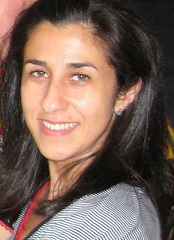
What have you gained from SPRING?
The most important contribution of SPRING to my knowledge and skills lies in the fact that it provoked my thoughts towards the willingness of all stakeholders to participate and contribute to the development of a particular country. The ways and whys of understanding each other’s perspective, interests, and acting in a coherent manner was indeed as difficult in our role-plays during the SPRING workshops as it is in reality. In fact, my years of field experience were challenged by our lecturers and group-mates opening my eyes to better negotiations, at the same time constructively equipping me with useful approaches.
In which professional activities have you been involved since the completion of SPRING?
I have been in the field ever since. After the graduation I returned to the same national development organization in Azerbaijan of which support was immense for me to advance my studies. Some years later I joined various international development projects in a conflict and/or disaster-stricken countries like Pakistan, Colombia, Haiti, etc.
What is your latest professional project? / Where and what are you working currently?
In the recent years I have been involved in monitoring and evaluation of emergency and development projects globally. I am fascinated to see the value of merging rather complex development interventions into the real-time-assistance no matter how challenging it might be at first.
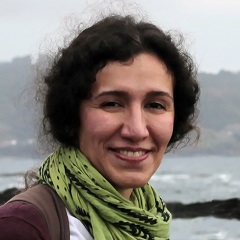
What have you gained from SPRING?
It is not exaggerating to say that SPRING has changed the entire path of my life! Empowering my abilities of observation, analyzing, criticizing and problem solving, SPRING opened up new opportunities for my personal and professional life.
In which professional activities have you been involved since the completion of SPRING?
After finishing the program (July 2015), I kept staying in Chile (my second year destination), developing and integrating my thesis in a project of my supervisor, for some months. Later, I presented the results in a paper and two different workshops in Concepción and Valdivia (Chile).
What is your latest professional project? / Where and what are you working currently?
Afterwards, being interested in living for more time in Chile, considering my background, I got a job in an architecture office, collaborating in the university projects of investigation and rehabilitation of patrimonial architecture of the city. It is more than a year that I am working in this office, and benefiting my planning master degree, now we have some planning projects in the office, including the Master Plan of the Historical Zone of Puerto Octay City, in the south of Chile.
Besides, being advanced in Spanish, and utilizing the methodological teamwork and moderating skills I have gained from SPRING, I am responsible of some other small architecture/planning projects of the office which are being done by my colleagues.
What have you gained from SPRING?
SPRING gave three things. First is the theoretical foundation and knowledge on what development planning and management exactly are, through its courses, seminars, discussions and field trips. Second is the practical experience on development planning and management gained when SPRING sent me to Chile, the most and real exciting development example in Latin America. Third is my SPRING family, my group mates and professors, who shared and taught me the progress I have made. Because of these three things, I have realized in which I should further go in my career path and fulfilled my childhood dream.
In which professional activities have you been involved since the completion of SPRING?
I started as a deputy head at the farming cooperative upon returning in august 2016. I supervise more than 20 people at the farming cooperative. Our main job is to provide seeds for the local farmers, seeds such as soybeans, safflowers, corn, wheat, and vegetable seeds. For the 2017 farming season, the cooperative has the above mentioned seeds to local farmers with an aim to improve local production, which are demanded at the local market.
What is your latest professional project? / Where and what are you working currently?
I have opened NGO named “Rural and Urban planning and development” in January 2017 in order to apply learned international knowledge and expertise in planning and development. Four projects were developed and submitted to donor communities. I have received my first grant from Soros Foundation to conduct a research in Osh city planning and development since 2010. Under the grant, I will have training in “Action research, effective writing, visualization and advocacy” executive course which will take place in Budapest between 11 and 17 June 2017. I have recruited 4 research assistants who will assist in research including its advocacy activities of the research findings and recommendation. My main goal for the next 5 years to become one of the leading research centers in development area in my home country. As a founder and director of NGO, I aim to initiated, develop and implement many projects in development of my village and country.
![[Translate to English:] SPRING Alumni [Translate to English:] Photo of Davaisanti Manivong](/storages/raumplanung/r/SPRING/Pictures/Alumni/SPRING_Davaisanti-Manivong_hp.jpg)
What have you gained from SPRING?
I graduated Bachelor’s degree in Engineering from the National University of Laos and working with Lao-German Cooperation (GIZ) for Integrated Rural Development Programme. During my first year, SPRING provided broad intersectional knowledge and skills across regional development planning fields including project management. In practical demonstration, there is a planning workshop (Group work), all students are working hard on brainstorming, sharing an idea of planning, where I have learned how to work in a team and share responsibility to create good products for master planning in one district. In addition, the program of SPRING contains many study visits and workshop presentations related topics
The second year of SPRING program allowed me to learn the real practice in the University of Philippines/UP Diliman. The UP Diliman/School of Urban and Regional Planning has given me an impression of the real practice with closely daily work, for example how to use GIS on land use planning, use GIS identify some critical/risky for flood areas and the bible of land use planning with practical techniques. During two year under SPRING Programme, I had the best time of my life in University! The SPRING program brought students from four continents, all with different backgrounds, together as well as professors who have given me extensive knowledge in broad ways of planning. We have learned so much from each other.
In which professional activities have you been involved since the completion of SPRING?
After graduating in the SPRING Programme in 2013, I have worked in different fields of development, mostly with International Development Organisations. I had my first job as a regional coordinator for pilot project at Handicap International, a project focused on the UN Convention for the Protection and Promotion of the Rights and Dignity of Persons with Disabilities Advocacy for Government Action Program for Cambodia, Laos and Thailand.
Then I got an Aid Effectiveness Specialist under Northern Upland Programme. The program is the Government of Lao PDR’s first attempt to apply a Programme Based Approach (PBA) in the agriculture and rural development sector which focused on fostering vientiane declaration implementation, strengthening policy making and capitalisation capacities, land and landscape management, local governance and planning food facility action and support to improve the livelihood assets of food insecure households.
What is your latest professional project? / Where and what are you working currently?
Currently, I am working at World Health Organisation (WHO) as a Project Coordinator, the project is focused on Health Management Information System to support a Health Sector Reform for 2016-2020.
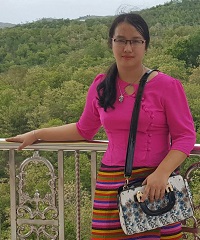
What have you gained from SPRING?
Actually, I couldn’t count the things and skills that I gained during my study at SPRING. Basically, I could learn different skills and knowledge which are essential for regional planners and the program encouraged me to think critically and creatively. Moreover, I got many important and valuable things for my future such as friendship. As I had opportunities to meet other students from different countries through SPRING, I could make friendships with them that have continued well beyond the end of our study. Another valuable chance was that SPRING favors us to work with our colleagues who came from different countries with different academic backgrounds, which could enhance working with people from all backgrounds.
In which professional activities have you been involved since the completion of SPRING?
Today I apply the knowledge and skills learned from SPRING as a government staff in Myanmar. After studying at TU Dortmund University and the School of Urban and Regional Planning at the University of the Philippines, I returned to my previous job, the Planning Department under the Ministry of Planning and Finance. At that time, I was involved in the team that was responsible to draft the 2nd Five Year Short-Term National Development Plan of Myanmar.
What is your latest professional project? / Where and what are you working currently?
Currently, I am working as an assistant director at the Union Minister’s office of the Ministry of Planning and Finance.
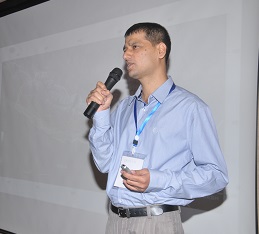
What have you gained from SPRING?
With great enthusiasm I went to Germany to study SPRING at the Technical University Dortmund. By the time I applied for the program my country was heading to federalism which led me to join the course and later wanted to replicate some of the lessons learned in local context. I gained a lot from the program that includes the academic as well as not academic but that help build the context for the academic knowledge and skills. The program imparted a lot in designing the development project with consideration of cross cutting issues like gender, poverty, conflict and peace, and governance. Besides that land use planning issues, solid waste management, burning urbanization management issues were focus of the program.
In which professional activities have you been involved since the completion of SPRING?
I involved in a project which helped government agencies to implement E-Governance. I was a project officer on that project with major responsibilities of coordinating activities with 12 government training institutes , the Office of Prime minister and the Council of Ministers and Asian Development Bank for about two years immediately after I came back from completing my study in 2012. Afterwards I worked in the District Development Committee of Ramechhap as highest tier of local government in the capacity of Planning Monitoring and Administrative officer, where I implemented result based planning and a monitoring system.
What is your latest professional project? / Where and what are you working currently?
Currently I have been involved in designing and implementing a program to help alleviate poverty as a chief of planning and policy formulation section under the Ministry of Cooperative and Poverty Alleviation, Government of Nepal. I was involved in designing the project that will provide qualitative vegetables to the city dwellers and employment at rural level with increased productivity. Besides that I am working with GIZ in developing and promoting productive cooperative in developing international value chain in selected commodities. I believe in the principle of human beings not being born, but formed and I am in that process, SPRING has given me the direction to that end whatever I do and where I am.
![[Translate to English:] SPRING Alumni [Translate to English:] Photo of Barkat Ali](/storages/raumplanung/r/SPRING/Pictures/Alumni/SPRING_Barkat_Ali_hp.jpg)
What have you gained from SPRING?
SPRING Programme indeed, was a two-years journey of extensive learning and development with exciting opportunities to meet people of different backgrounds, make friends and witness the sustainable development interventions in Europe and Ghana.
In which professional activities have you been involved since the completion of SPRING?
Since the completion of SPRING Programme, I have been involved in program planning and management activities that encompass the socio-economic development of rural and urban regions of Pakistan, particularly in a mountain region called Gilgit-Baltistan (the jewel of Pakistan). These activities include: safe drinking water supply and sanitation projects, land use planning, disaster risk reduction and resettlement programmes, energy efficient and disaster resilient construction programmes and environmental development activities.
What is your latest professional project? / Where and what are you working currently?
Currently, I am working as Regional Programme Coordinator with IFAD and Government of Pakistan’s co-funded seven (7) years program i.e. “Economic Transformation Initiative, Gilgit-Baltistan” with an overall goal to improve income and reduce poverty and malnutrition in rural areas of Gilgit-Baltistan that will benefit over 100,000 households in 10 districts of Gilgit-Baltistan through irrigation and land development (irrigating 50,000 acres of barren land), constriction of farm to market roads, improving support services for value chain development and program management and policy support.
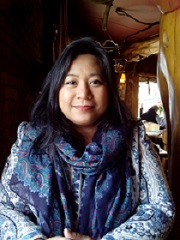
What have you gained from SPRING?
Aside from learning about the theories, different methodologies, and contexts of spatial planning and from the professional experiences shared by our class, I gained new friends, understood better other cultures, and acquired skills in facilitation, coordination, and conflict resolution.
In which professional activities have you been involved since the completion of SPRING?
I continued my professional activities in Chile: I was involved in the initial phases of the
implementation of some regional government infrastructure development projects, administrative
and teaching work at SPRING Chile, activities related to energy efficiency, and as a GIS consultant.
What is your latest professional project? / Where and what are you working currently?
Currently, I work at World Wildlife Fund, an international conservation/environmental NGO, in the
Chile country office. I am responsible for the coordination of all GIS related activities within the Chile office for our different focuses (forests, freshwater, marine conservation, sustainable markets, fishery, and governance) especially data gathering and spatial analysis; participatory mapping; and overlooking the developments in improving how to capture, visualize and share spatial information like a community science mobile application. This year, as a Spatial Planning Technical Officer, I started involving myself more in the conservation planning standards especially within the landscape and seascape level (landscape approaches, marine spatial planning, etc).
![[Translate to English:] SPRING Alumni [Translate to English:] Photo of Adriana Lemus](/storages/raumplanung/r/SPRING/Pictures/Alumni/SPRING_Adriana-Lemus_hp.jpg)
What have you gained from SPRING?
The SPRING program definitely helped me see other disciplines involved in development in a new, more holistic perspective. And aside from the knowledge I gained through the course subjects, there were other key aspects that I learned during my time as a SPRING student. The multi-cultural experience has been extremely valuable, not only for academic development, but also in my future professional and personal life. It is one of the features that make this master’s program very special.
In which professional activities have you been involved since the completion of SPRING?
Since completing the program, I have continued to work as an independent architect as well as being more actively involved with organisations dealing with development and urban planning back in El Salvador, particularly with Smart Cities and the use of technology in planning.
What is your latest professional project? / Where and what are you working currently?
Currently I am based in the Federated States of Micronesia (FSM) working as a consultant for the International Organization for Migration (IOM). My job requires a bit of travelling and lots of field work to profile the pre-disaster condition of the public infrastructure in multiple states within FSM.
![[Translate to English:] SPRING Alumni [Translate to English:] Photo of Manjur Morshed](/storages/raumplanung/r/SPRING/Pictures/Alumni/SPRING_Manjur-Morshed_hp.jpg)
What have you gained from SPRING?
Traveling abroad and studying in Germany was really a dream of mine that came true. I have gained so much professional experience, because here at SPRING both teachers and students come from different professional fields - these people from all over the world together in one room creates a truly special opportunity to learn from each other. It was also a great opportunity for me to travel around the world, especially to Europe and Latin America.
In which professional activities have you been involved since the completion of SPRING?
During my second year at SPRING I applied for a PhD at the University of Tokyo, which I pursued from 2010 to 2013. After that I went back to my home country Bangladesh and started working as a teacher at the Khulna University of Engineering and Technology. I have been working at the university since 2013 and currently am Assistant Professor. At the same time, I am involved in several research projects and some consulting activities.
What is your latest professional project? / Where and what are you working currently?
My most recent research project is called "Modelling and Measuring the Social License to Operate: An Application of the Thompson and Boutilier for Infrastructure Project in Khulna". Usually, large infrastructure projects are implemented by the governments in Bangladesh without the consent of the affected community and without measuring the negative social, economic and environmental consequences of the project. In this project, we try to measure and model the social acceptance of infrastructure projects by the affected community/stakeholder.
In addition I worked on a project with the South Asian Network for Development and Environmental Economics (SANDEE) to examine the effects of shrimp aquacultures on salt content in neighbouring rice fields and how this affects the profits of rice production as well as the local economy and environment in the inner-coastal areas of Bangladesh.






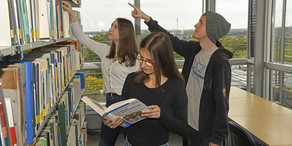
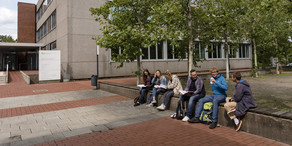
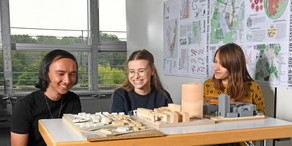
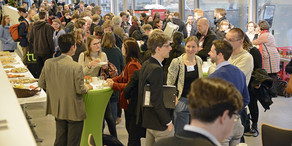

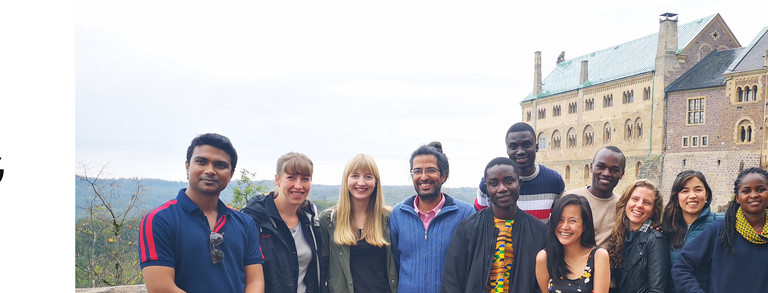
![[Translate to English:] SPRING Alumni [Translate to English:] Photo of Japeth Habinshuti](/storages/raumplanung/r/SPRING/Pictures/Alumni/SPRING_Japeth-Habinshuti_hp.jpg)
![[Translate to English:] SPRING Alumni [Translate to English:] Photo of Damodar Adhikari](/storages/raumplanung/r/SPRING/Pictures/Alumni/SPRING_Damodar-Adhikari_hp.jpg)
![[Translate to English:] SPRING Alumni [Translate to English:] Photo of Stefanie Holzwarth](/storages/raumplanung/r/SPRING/Pictures/Alumni/SPRING_Stefanie-Holzwarth_pic.jpg)
![[Translate to English:] SPRING Alumni [Translate to English:] Photo of Julio Estrada](/storages/raumplanung/r/SPRING/Pictures/Alumni/SPRING_Julio-Estrada_hp.jpg)